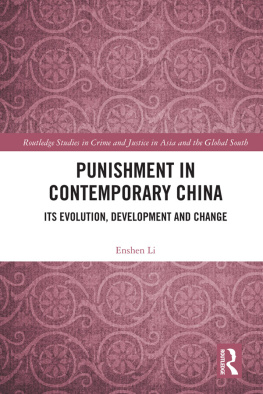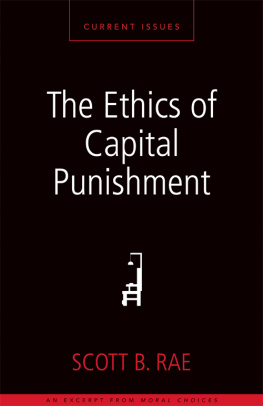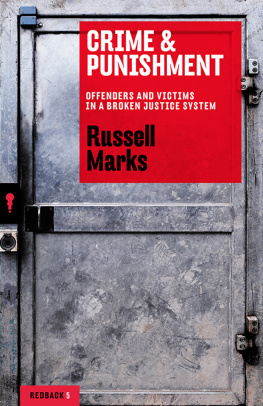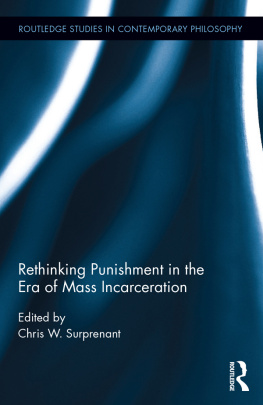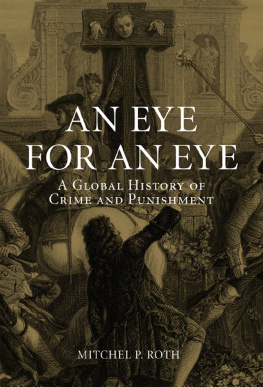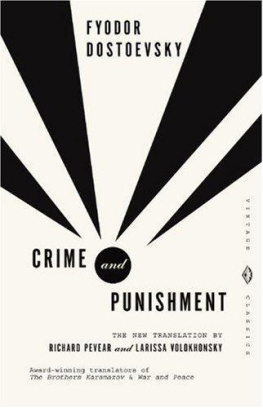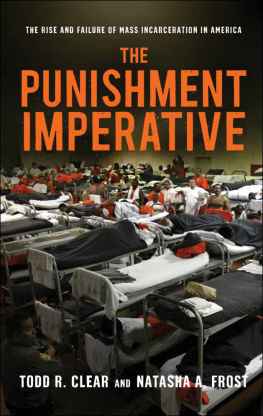Karol M Lucken - Rethinking Punishment: Challenging Conventions in Research and Policy
Here you can read online Karol M Lucken - Rethinking Punishment: Challenging Conventions in Research and Policy full text of the book (entire story) in english for free. Download pdf and epub, get meaning, cover and reviews about this ebook. year: 2017, publisher: Routledge, genre: Politics. Description of the work, (preface) as well as reviews are available. Best literature library LitArk.com created for fans of good reading and offers a wide selection of genres:
Romance novel
Science fiction
Adventure
Detective
Science
History
Home and family
Prose
Art
Politics
Computer
Non-fiction
Religion
Business
Children
Humor
Choose a favorite category and find really read worthwhile books. Enjoy immersion in the world of imagination, feel the emotions of the characters or learn something new for yourself, make an fascinating discovery.

- Book:Rethinking Punishment: Challenging Conventions in Research and Policy
- Author:
- Publisher:Routledge
- Genre:
- Year:2017
- Rating:4 / 5
- Favourites:Add to favourites
- Your mark:
Rethinking Punishment: Challenging Conventions in Research and Policy: summary, description and annotation
We offer to read an annotation, description, summary or preface (depends on what the author of the book "Rethinking Punishment: Challenging Conventions in Research and Policy" wrote himself). If you haven't found the necessary information about the book — write in the comments, we will try to find it.
There are visible signs that the get-tough era of punishment is finally winding down. A get-smart agenda has emerged that aims to reduce costs and crime by reducing the incarceration of non-violent drug offenders, expanding use of community-based corrections, revising sentencing structures, and supporting offender re-entry into the community. This change in policy affords an opportunity to re-examine and challenge certain other conventions in the study and practice of punishment.
Each chapter of Rethinking Punishment examines a convention and posits arguments that challenge that convention and expand the conversation. These arguments are based on the prior literature, existing and original data, and historical documents. These conventions and arguments for rethinking punishment are framed accordingly:
- Justifying Penal Policy
- Defining the Attributes of Punishment
- Measuring the Scope and Severity of Punishment
- Evaluating Effectiveness in Punishment
Finally, the author provides specific recommendations for research and policy based on these original arguments. Drawing on underlying philosophical, empirical and political issues and offering a critical discussion of the relationship between research, policy and practice, this book makes compelling and instructive reading for students taking courses in criminal justice, corrections, philosophy of punishment, the sociology of punishment, and law and justice.
Karol M Lucken: author's other books
Who wrote Rethinking Punishment: Challenging Conventions in Research and Policy? Find out the surname, the name of the author of the book and a list of all author's works by series.

